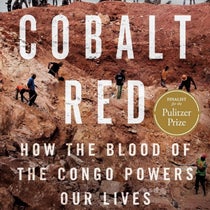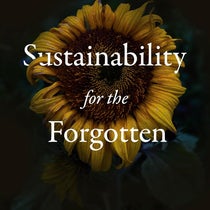Green Reads: What if We Get it Right
“The problem isn’t just emissions. The underlying problem is our society has checked out of even the notion of democracy. This is a moment for democracy to either get a second breath or it’s where democracy is going to die… The answer to all of this is community. Knowing people and seeing people’s humanity and building from there.”
- Collete Pichon Battle in What if We Get it Right by Ayana Elizabeth Johnson
What if We Get it Right by Ayana Elizabeth Johnson is a collection of interviews with experts in a variety of fields to give insight on how to practically tackle the issue of climate change. Understanding that the solution to ecological collapse is community, Johnson sits down with journalists, filmmakers, farmers, activists, scientists, architects, lawyers, legislators, students and community leaders to discuss what a sustainable future looks like and how to achieve it. Readers hear from a wealth of different perspectives on what we should all know about climate change, what’s the most important random thing we can do, their vision of the future if we ‘get it right’ and what is holding us back right now.
What if We Get it Right puts praxis at the center of hope with a sober tone that is grounded in reality. While the struggle is grueling, Johnson emphasizes that we have everything we need to address climate collapse. Now, we must decide if we care enough to do the work. Each section is book-ended with a list of ten problems and ten possibilities. Throughout the discussions, we see that often it’s not the most glamorous actions that make the most impact, though sweeping systemic and institutional change is imperative. Readers are encouraged to consider small changes that can have a huge impact. Sometimes it’s as simple as heat pumps, transmission lines, carbon footprint labels on products or showing up to local community meetings.
Ayana Elizabeth Johnson seeks not to alleviate climate anxiety and leave readers with a warm, fuzzy feeling that everything will work out in the end, but instead, is sending out a call to action. The sense of hopeless inevitability that surrounds conversations about climate change tends to paralyze people into inaction. Ayana reminds us that we cannot afford to give up, there is too much work to be done. Comprised of 32 interviews with people spanning across multiple industries, trades, and creative fields, What if We Get it Right makes it evident that we each have a role to play in the fight for our planet.
“So, leaning into possibility becomes ever more critical. Not hope or optimism or pessimism, not utopia or dystopia, but what is possible.” -Ayana Elizabeth Johnson
Tips as outlined in What if We Get it Right:
For corporations
- “Stop greenwashing, find new ways to make a buck, commit to the long term, make a real plan to account for and reduce emissions, execute the plan, be transparent, actually decarbonize and protect nature; don’t just buy offsets, lobby for climate solutions, not against them, collaborate before you compete, use scale and market influence to accelerate change, talk about process, give back.”
For governments
- “Stop subsidizing fossil fuels, mandate climate reporting to establish rigorous accountability, set tough baselines for pollution, make companies clean up their messes, use both carrots and sticks—incentives and loans, plus taxes and fines.”
For citizens and employees
- “Be skeptical. Don’t fall for greenwashing, demand specificity and transparency, be a climate citizen, make change from the inside, vote with your dollars.”
For everyone
- “Keep showing up, bring your superpowers, join something, find your people, be a problem solver, choose your battles, nourish joy, love nature.”
More recommended reading on the subject
- Humanity's Moment: A Climate Scientist's Case for Hope by Joëlle Gergis
- Sustainable Energy Pathways to Net Zero by Larry E. Erickson and Gary Brase
- Social Mobilization for Climate Change edited by Valentina E. Albanese, Stefano Fanetti and Roberta Minazzi
- Rethinking Wilderness and the Wild: Conflict, Conservation and Co-Existence by edited by Robyn Bartel, Marty Branagan, Fiona Utley and Stephen Harris
- The Great Transition: Shifting from Fossil Fuels to Solar and Wind Energy by Lester R. Brown with Janet Larsen, J. Matthew Roney, and Emily E. Adams, Earth Policy Institute









